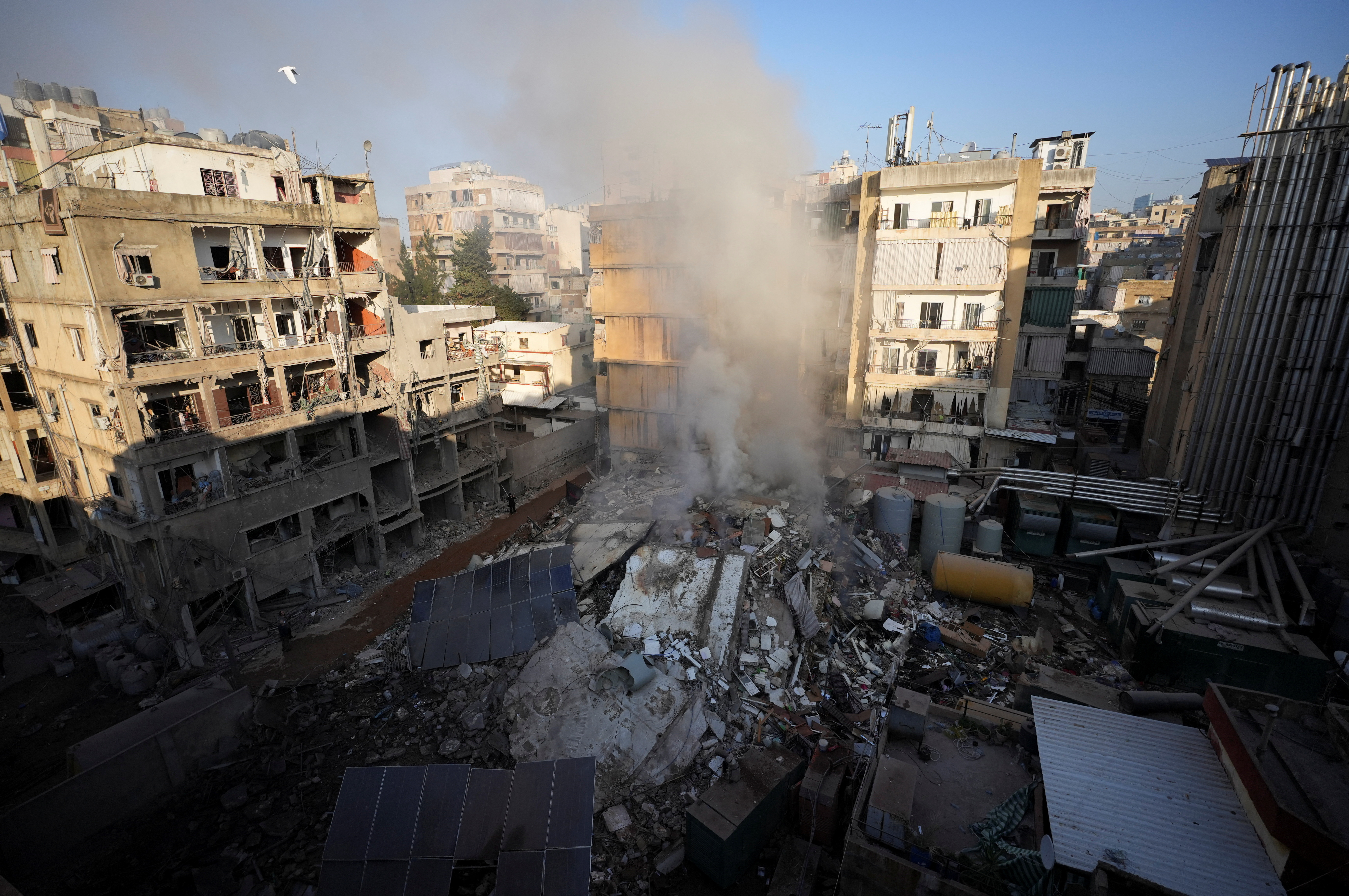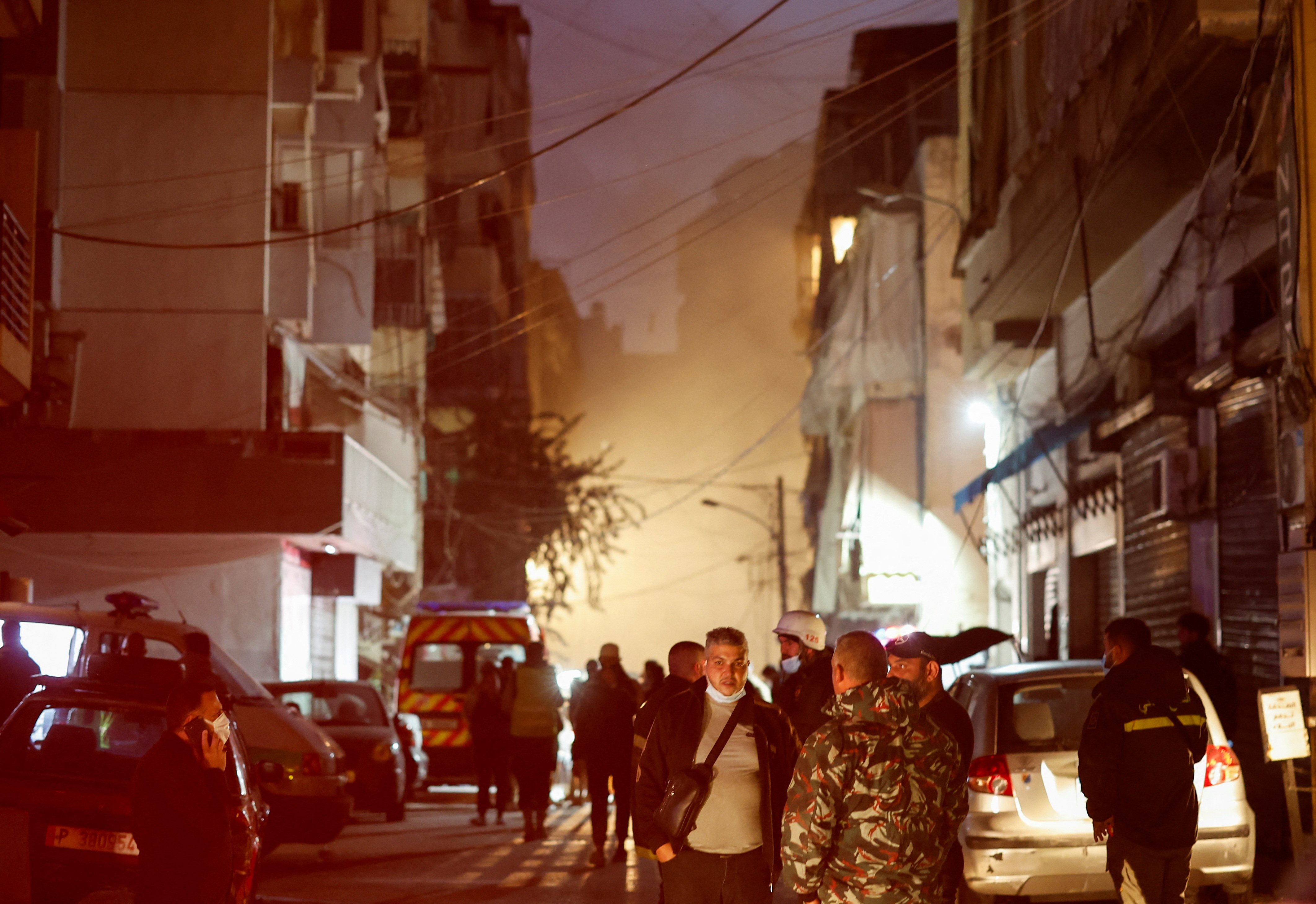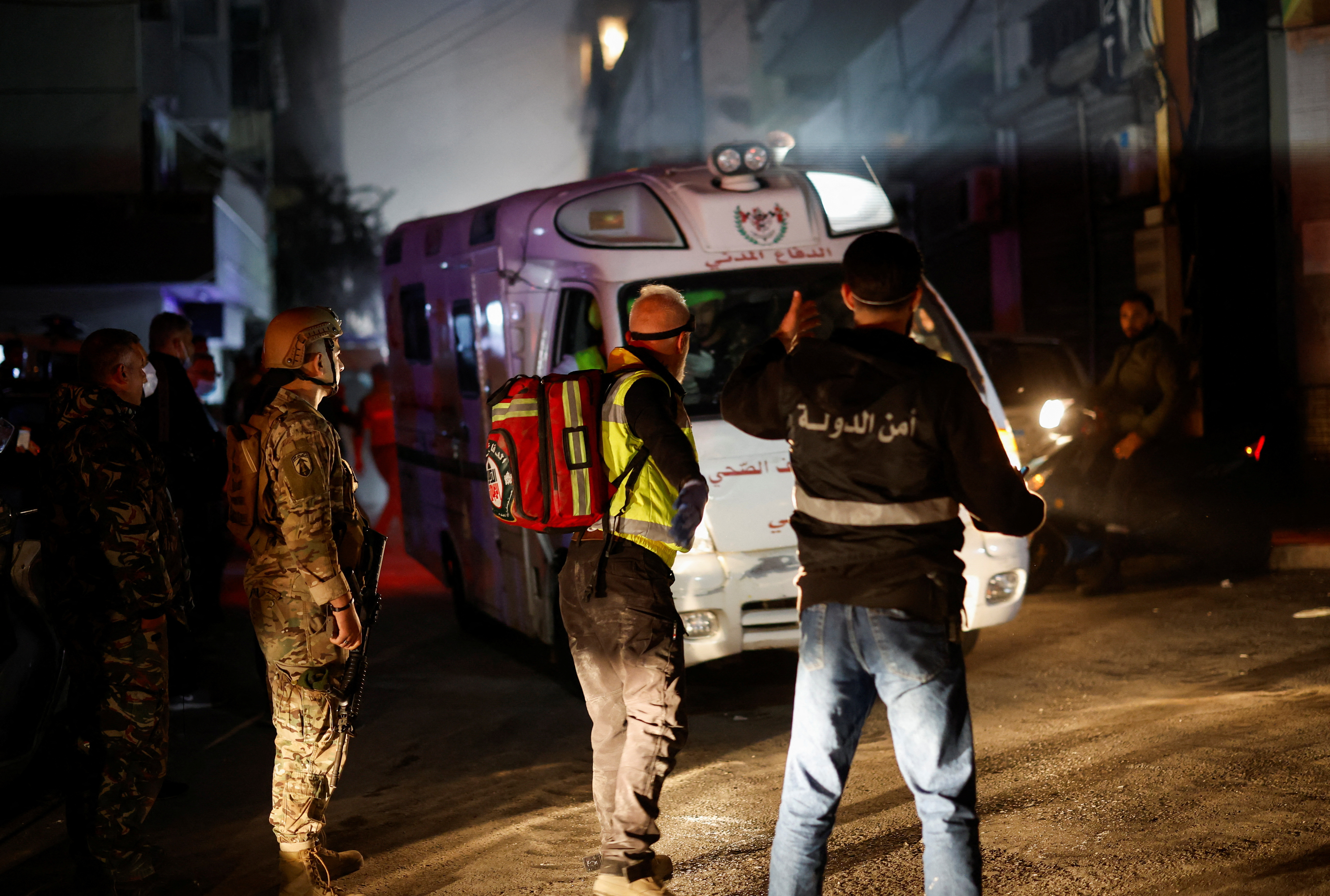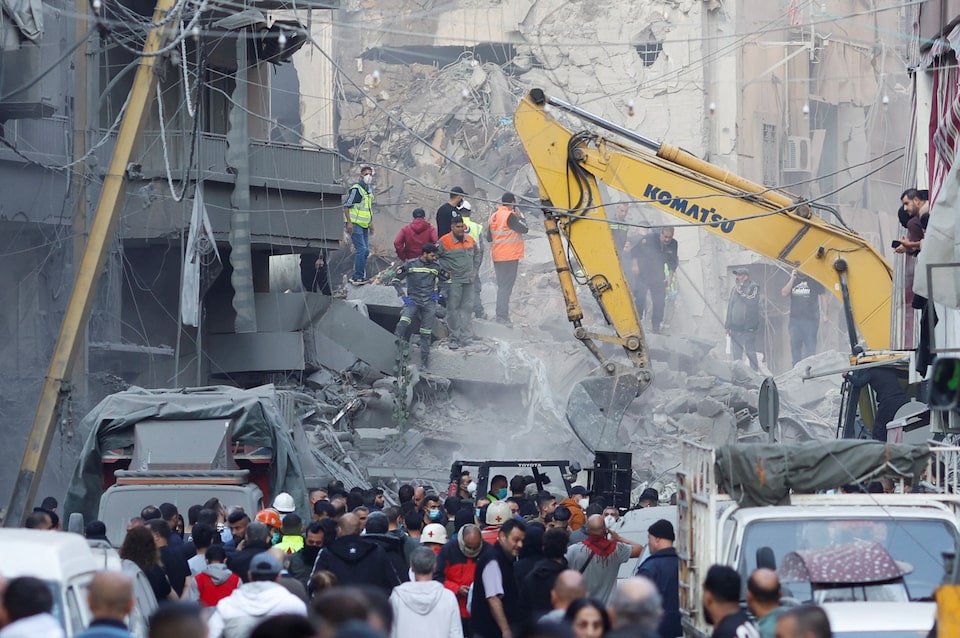Rescuers work the site of an Israeli strike in Beirut’s Basta neighbourhood, amid the ongoing hostilities between Hezbollah and Israeli forces, Lebanon November 23, 2024. REUTERS

A view of rubble at a damaged site in the aftermath of Israeli strikes on the Chiyah district of Beirut’s southern suburbs, amid the ongoing hostilities between Hezbollah and Israeli forces, in Lebanon November 23, 2024. REUTERS

People gather at the site of an Israeli strike in Beirut’s Basta neighbourhood, amid the ongoing hostilities between Hezbollah and Israeli forces, Lebanon November 23, 2024. REUTERS

Emergency services work at the site of an Israeli strike in Beirut’s Basta neighborhood, amid the ongoing hostilities between Hezbollah and Israeli forces, Lebanon November 23, 2024. REUTERS
- Attack destroys eight-storey building, Lebanese news agency says
- Latest strike takes place amid efforts to achieve a ceasefire
- Israel’s campaign against Hezbollah sharply escalated since September
BEIRUT, Nov 23 (Reuters) – A powerful airstrike killed at least four people in central Beirut early on Saturday, the health ministry said, shaking the Lebanese capital as Israel pressed its offensive against the Iran-backed Hezbollah group.
The attack destroyed an eight-story building and caused a large number of fatalities and injuries, Lebanon’s National News Agency said. Footage broadcast by Lebanon’s Al Jadeed station showed at least one destroyed building and several others badly damaged around it.
Israel used bunker-buster bombs in the strike, leaving a deep crater, the agency said. Beirut smelled strongly of explosives hours after the attack.
Reuters witnesses said the blasts shook the capital at around 4 a.m. (0200 GMT). Security sources said at least four bombs were dropped in the attack.
It marked the fourth Israeli airstrike this week targeting a central area of Beirut, in contrast to the bulk of Israel’s attacks that have targeted the Hezbollah-controlled southern suburbs. On Sunday an Israeli airstrike killed a Hezbollah media official in the Ras al-Nabaa district of central Beirut.
Rescuers searched through rubble.
A man whose family was hurt tried to comfort a traumatized woman outside a hospital. Car windows were shattered.
“There was dust and wrecked houses, people running and screaming, they were running, my wife is in hospital, my daughter is in hospital, my aunt is in the hospital,” said the man, Nemir Zakariya, who held up a picture of his daughter.
“This is the little one, and my son also got hurt – this is my daughter, she is in the American University (of Beirut Medical Centre), this is what happened.”
Israel launched a major offensive against Hezbollah in Lebanon in September, following nearly a year of cross-border hostilities ignited by the Gaza war, pounding wide areas of Lebanon with airstrikes and sending troops into the south.
The conflict began when Hezbollah, Tehran’s most important ally in the region, opened fire in solidarity with its Palestinian ally Hamas after it launched the Oct. 7, 2023 attack on southern Israel.
A U.S. mediator travelled to Lebanon and Israel this week in an effort to secure a ceasefire. The envoy, Amos Hochstein, indicated progress had been made after meetings in Beirut on Tuesday and Wednesday, before going to meet Israeli Prime Minister Benjamin Netanyahu and Defence Minister Israel Katz.
Reporting by Laila Bassam, Riham Alkousaa, Tom Perry, Enas Alashray, Adam, Ayman Sahely and Ahmed Fahmy Writing by Tom Perry and Michael Georgy Editing by Christopher Cushing, William Mallard, Sam Holmes and Frances Kerry








